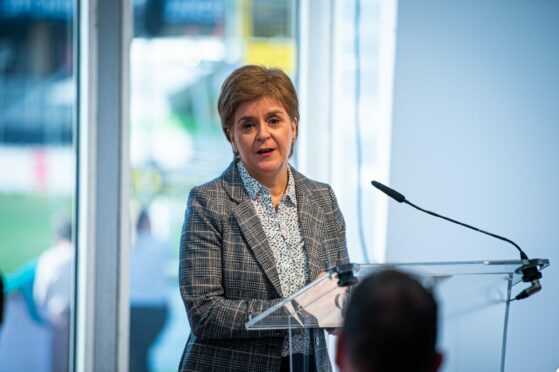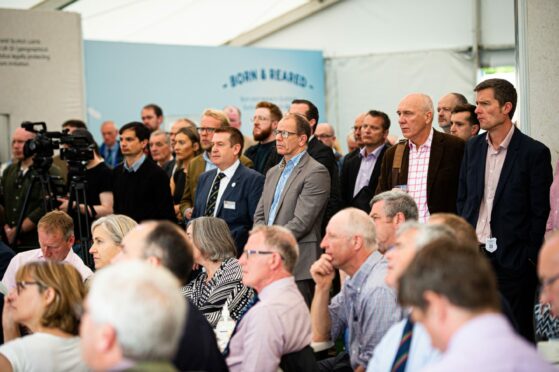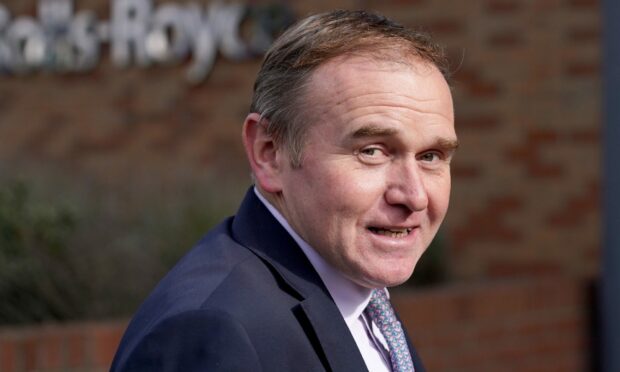The Royal Highland Show continued to celebrate its bicentenary yesterday with a sell-out crowd of 50,000 and an Ingliston atmosphere the event’s organisers described as “second to none”.
An additional 70,000 people from 51 countries watched the judging, parades and competitions live on RHS TV and, with two days and highlights such as the beef and sheep interbreed awards still to be judged, Alan Laidlaw, the show’s chief executive, claimed the event had raised Scotland’s profile around the world.
It was the day for political visits, with both First Minister Nicola Sturgeon and Defra Secretary George Eustice touring the event, albeit with starkly different messages on farm support, gene editing, independence and the impact of Brexit.
And, from early morning, there was also a collective holding of breath across the showground as news spread of a suspected outbreak of foot and mouth disease (FMD) being investigated in Norfolk.
Defra imposed movement restrictions and a 10km temporary control zone around the premises as a precaution, and while testing later ruled out FMD, the restriction zone remained in place for pigs as vets investigated other vesicular diseases.
The first minister assured a breakfast meeting of farming leaders that they were valued and that her government would offer assistance as the industry faced the challenges of escalating input cost and the implications of Brexit.
Later, she said independence would give Scotland the opportunity to rejoin the European Union and get a seat at the top table.
“We could then argue our case and put forward our interests when it comes to the future of the Common Agricultural Policy or Common Fisheries Policy, which is a better solution than being outside of all of that but still affected by many of the decisions that are being taken,” she said.
“Farmers are suffering through a Brexit Scotland didn’t vote for.”
The absence of a ready supply of seasonal agricultural workers is one of those implications.
Mr Eustice told a press briefing he believed this year’s allocation of 40,000 visas would be enough to meet demand, even when the fruit season reaches its peak in the next few weeks – a view that is disputed by soft fruit producers.
Mr Eustice added that Defra’s latest intelligence indicated visas have already been issued for around 28,000 workers.
“We announced a 10,000 increase last week, and last year 25,000 came, although that was a Covid year so quite a few people who might have come didn’t,” he added.
“For the moment the visa numbers haven’t been a cap on numbers coming. Last year, 70% of staff coming in on the visa scheme were Ukrainians, and this year very few are coming for obvious reasons, therefore the operators have had to go to a much wider, more diverse range of countries to get people in, and that physical recruitment from multiple countries has proved to be harder.
“We think 40,000 will be sufficient for the current year, but the numbers are reviewed year on year and we will look again at what’s needed in 2023. If it needs to be higher we will set it at a higher level.”
Mr Eustice also rejected the suggestion that Defra’s focus on supporting farmers for environmental measures risked compromising food security in England.



